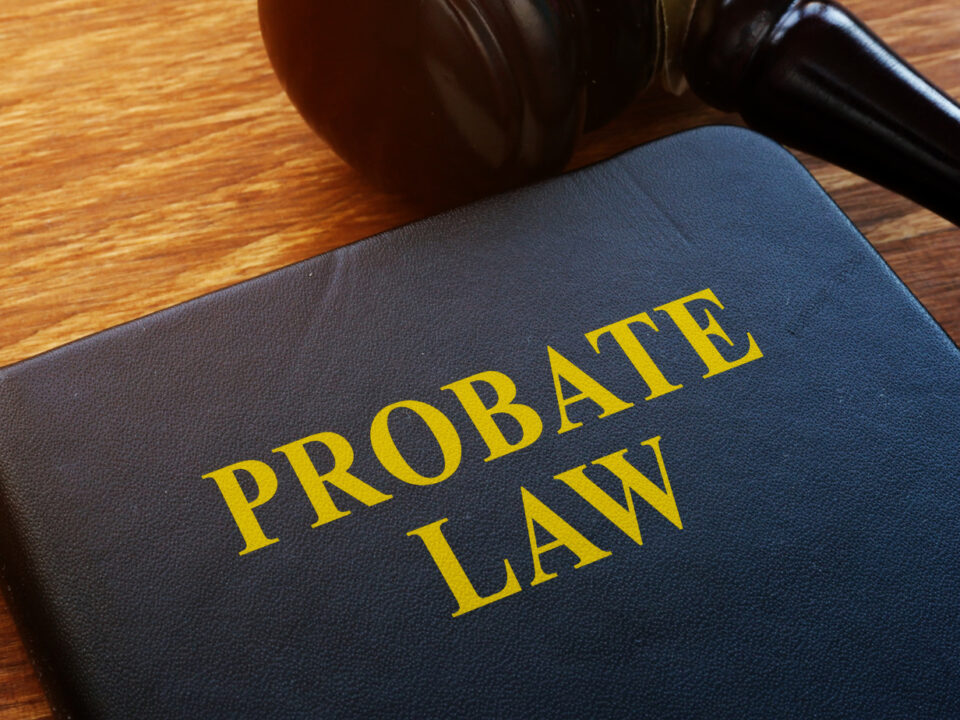- EXPERIENCED LAW FIRM IN TOLEDO, OH
- (419) 662-3100
How to Avoid Public Probate for Large Estates

The 2026 Estate Tax Sunset: What Ohio Families Need to Know
May 4, 2025
How to Avoid Probate in Ohio During the Great Wealth Transfer
May 17, 2025Keep Probate Private
For many high-net-worth families in Ohio, privacy isn’t just a preference; it’s a priority. But when a loved one passes away and their estate enters probate, that priority can quickly be undermined. Probate is a court-supervised process intended to settle debts, validate a will, and distribute assets.
Unfortunately, it’s also inherently public. Wills filed with the court become accessible documents, and probate hearings often reveal sensitive financial and personal information. For families with multimillion-dollar estates, this transparency can feel like an invasion.
What Usually Becomes Public
Under Ohio law, probate records are generally open to the public. That means anyone from curious neighbors to opportunistic fraudsters can access information about the estate, including what assets were owned, who is inheriting them, and whether any disputes have arisen. Some counties even provide online access to these records, making it easier than ever to view the financial details of a family’s estate.
What’s more, probate doesn’t just reveal dollar amounts. It exposes the relationships behind them. Which child got the family business? Was a second spouse favored over the children from a first marriage? Did one sibling contest the will? These emotional and often complex family dynamics can play out in court documents or public hearings records that anyone can request.
The Price of Transparency for Affluent Estates
For high-net-worth families, probate transparency can come at a steep cost. When estate records become public, they reveal not just financial details but also personal and family dynamics that were never meant for outside eyes. This level of exposure can open the door to unwanted attention, legal vulnerability, and reputational risk.
Here are some of the most serious concerns:
- Asset exposure: Public probate filings can reveal detailed valuations of real estate, business holdings, art, and investments, making them targets for scams or theft.
- Beneficiary targeting: Heirs who inherit significant assets may attract unwanted solicitations or become targets of financial predators.
- Reputational harm: If the estate is contested, sensitive disputes become public record, potentially drawing media attention and damaging the family’s image.
- Loss of discretion: Private decisions about who inherits what and why can be scrutinized and questioned, especially in blended or complex family situations.
Why It’s Hard to Stay Under the Radar
In Ohio, the probate process is designed to ensure transparency and fairness. But that design inherently limits discretion. When someone dies owning assets in their name alone without a trust or beneficiary designation, those assets must pass through probate. A will must be filed, creditors must be notified, and heirs must be formally named. This is recorded in the county probate court, where the documents become part of the public file.
Even if no one contests the estate, the process leaves a trail of financial footprints. Probate inventories include valuations of real estate, investments, and personal property. Executor reports may outline debts paid, income earned, or legal fees incurred. It’s a paper trail that many families would prefer to keep private, and they can with the right planning.
Legal Tools That Offer Privacy
Wealthy Ohio families need to plan ahead using tools designed to keep estate matters private to avoid the public exposure of probate. Fortunately, several legal strategies can help assets pass to heirs outside court supervision. By structuring ownership and beneficiary designations properly, families can keep financial details and personal decisions from the public record.
Some of the most effective privacy-preserving tools include:
- Revocable living trusts: Assets placed in a trust during your lifetime avoid probate entirely and are distributed privately, without public court filings.
- Transfer-on-death (TOD) designations: Ohio allows TOD transfers for real estate, bank accounts, investments, and vehicles, letting those assets pass directly to beneficiaries without probate.
- Joint ownership with rights of survivorship: When a property is jointly owned, it typically passes to the surviving owner automatically, with no probate required.
- Limited Liability Companies (LLCs): Business interests held in an LLC aren’t listed in probate documents. Only the ownership shares are transferred, preserving financial privacy.
Broader Strategies That Work
These privacy strategies aren’t limited to Ohio. Across the country, wealthy families use trusts, TOD accounts, and LLCs to shield their estates from public scrutiny. Some even take it further, using irrevocable trusts or structuring holdings in states with stronger privacy protections, such as South Dakota or Nevada.
Another trend among high-net-worth individuals is the use of “quiet trusts.” These specialized trust structures delay or limit what beneficiaries are told about their inheritance, further protecting family privacy during and after the estate transition.
When To Call A Lawyer
While these tools are powerful, they must be implemented with precision. A poorly drafted trust, a lapsed TOD form, or an outdated estate plan can still result in a public probate proceeding. Working with an experienced Ohio estate planning and probate attorney is essential.
An attorney can coordinate all moving parts, make sure your assets are properly titled, your trust is funded, and your designations are up to date. They’ll also help you consider contingencies, such as blended families, out-of-state properties, or charitable bequests, and craft a plan that honors your wishes without sacrificing discretion.
Should any part of your estate still require probate, your attorney can guide your executor through the process while minimizing unnecessary exposure. There are ways to handle even public probate with greater sensitivity and strategy, from utilizing simplified proceedings to limiting what’s disclosed in court filings.
Protecting What Matters Most
Privacy is often as valuable as wealth, especially during the vulnerable period following a loved one’s passing. Fortunately, with the right legal planning, Ohio families can keep their financial affairs and family dynamics out of the public eye.
If you’re concerned about protecting your estate from unwanted attention, our firm can help. We work closely with high-net-worth individuals and families to build estate plans prioritizing confidentiality, control, and peace of mind.
Contact us to schedule a confidential consultation and learn how we can help you structure your estate plan to keep probate private and your legacy secure.









